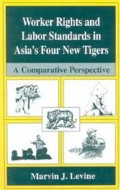Abstract
Malaysia is a federation, a democracy, and a constitutional monarchy, but one in which power is strongly centralized. Opposition parties have more scope for gaining power than those in neighboring Asian countries; they can, for example, win control of state governments, but the ruling Barisan Nasional (National Front) coalition tends to counter this by cutting funding to states which vote against it. It also strictly controls the press.
Access this chapter
Tax calculation will be finalised at checkout
Purchases are for personal use only
Preview
Unable to display preview. Download preview PDF.
References
Malaysia-only a few worries. (1995). Business Asia, 1, 16, 9.
U.S. Department of State. (1994). Malaysia Human Rights Practices, 1993, 1, 31.
Political background: history. (1994). Economist Intelligence Unit, 1, 1.
Political background: the constitution. (1994). Economist Intelligence Unit, 1, 1.
Political background: political forces. (1994). Economist Intelligence Unit, 1, 1.
Business Asia, op. cit.
Political forces, op. cit.
Yunus, K. (1994). Ah Lek slams union leaders who seek foreigners’ help. Business Times (Malaysia), 1, 15.
PM—be wary of western media control, influence. (1994). Business Times (Malaysia), 3, 14.
Mills, S. (1994). Progress, but not at any cost—Anwar—human rights. Australian Financial Review, 5, 25, 12.
Bin Hassan, M.J. (1995). Malaysia in 1994. Asian Survey, 35, 2, 186–188.
Ibid.
Kaur, H. (1993). Malaysia’s economic success fostering some unwanted traits? Business Times (Malaysia), 6, 3, 20.
Yunus, K. (1993). Nation needs 700,000 workers during 1990–98. Business Times (Malaysia), 11, 26, 2.
Malaysian Human Rights Practices, 1993, op. cit.
U.S. Central Intelligence Agency. (1994). World Factbook: Malaysia 1994.
Malaysia-economic policy & trade practices. (1991). Market Report, 2.
The new economic policy. (1993). Pacific Viewpoint, 3, 93–94.
Bosses and workers told to make sacrifices. (1993). Business Times (Malaysia), 5, 1, 24.
Rights and permissions
Copyright information
© 1997 Plenum Press, New York
About this chapter
Cite this chapter
(1997). Political Events, Economic Facts, and Demographic Variables. In: Worker Rights and Labor Standards in Asia’s Four New Tigers. Springer, Boston, MA. https://doi.org/10.1007/978-0-585-34649-6_16
Download citation
DOI: https://doi.org/10.1007/978-0-585-34649-6_16
Publisher Name: Springer, Boston, MA
Print ISBN: 978-0-306-45477-6
Online ISBN: 978-0-585-34649-6
eBook Packages: Springer Book Archive

